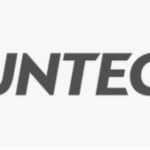Introduction
Sleeplearning.com presents itself as a revolutionary platform offering products that promise to help users learn new skills, acquire languages, and achieve personal growth all while they sleep. By leveraging the concept of hypnopedia (sleep learning), the website claims to tap into the brain’s subconscious during slumber, enabling effortless learning. The allure of mastering a new language or boosting self-confidence overnight is undeniably attractive, making Sleeplearning.com’s offers tempting for individuals seeking quick, convenient self-improvement solutions.

However, a closer examination reveals a concerning reality behind these promises. Despite the bold claims, scientific research refutes the effectiveness of sleep learning for complex information acquisition. Furthermore, customer complaints, hidden subscription fees, and deceptive marketing tactics suggest that Sleeplearning.com may be more of a scam operation than a legitimate self-improvement resource. In this investigation, we delve into the scientific validity, customer experiences, and suspicious business practices of Sleeplearning.com to uncover the truth behind its operations.
Questionable Scientific Credibility Behind Sleep Learning
The core premise of Sleeplearning.com is based on hypnopedia, the notion that individuals can absorb new information during sleep. The platform claims that its audio programs can help users:
- Master foreign languages.
- Improve memory retention.
- Boost self-confidence and motivation.
- Overcome stress and anxiety—all through passive listening while asleep.
While this concept is enticing, scientific research refutes its effectiveness. Leading neuroscientists, such as Anat Arzi from the Weizmann Institute of Science, have conducted studies demonstrating that:
- While sleep is vital for memory consolidation, the brain is incapable of learning new, complex information during slumber.
- The most that can be achieved is conditioning associations, such as linking sounds with emotional responses, but not actual knowledge acquisition.
By promoting sleep learning as a scientifically proven method, Sleeplearning.com misleads consumers into believing in an unproven and largely debunked concept. This exploitation of pseudoscience raises serious concerns about the platform’s credibility and integrity.
Overblown Claims and Misleading Marketing Tactics
Sleeplearning.com relies heavily on aggressive marketing techniques that promise unrealistic results. The website advertises its products with bold, exaggerated claims, including:
- “Learn a new language in your sleep effortlessly!”
- “Unlock your full potential overnight with subconscious learning!”
- “Achieve self-improvement goals while you dream!”
These sensational slogans create unrealistic expectations, preying on consumers seeking rapid, effortless self-improvement. However, there is no credible scientific evidence to support these claims. The platform uses pseudoscientific buzzwords and vague references to neurological studies to appear legitimate, but the lack of direct references to peer-reviewed research is a major red flag.
Additionally, Sleeplearning.com engages in affiliate marketing and potentially pays for fake positive reviews on third-party platforms, creating an illusion of widespread customer satisfaction to boost its credibility.
Dubious Customer Experiences and Complaints
Consumer experiences reveal a pattern of deception and dissatisfaction associated with Sleeplearning.com. Reviews on platforms like Trustpilot, Reddit, and Better Business Bureau (BBB) highlight multiple concerns:
- Ineffective Products: Many users report that the sleep-learning programs yield no tangible results, even after weeks of use. This suggests that the products are either ineffective or based on placebo effects.
- Hidden Fees and Subscription Scams: Several complaints mention unexpected charges. Customers report being enrolled in recurring subscription plans without their explicit consent, leading to ongoing deductions from their bank accounts.
- Unresponsive Customer Support: Numerous users describe difficulties in contacting Sleeplearning.com for refunds or technical support, with complaints going unanswered.
- No Refund Policy: Customers who attempt to cancel subscriptions or request refunds often face denials or complete unresponsiveness, indicating poor business ethics.
The prevalence of such complaints raises serious doubts about Sleeplearning.com’s credibility and legitimacy.
Privacy Concerns and Data Exploitation
Like many online platforms, Sleeplearning.com requires users to provide personal information during registration, including:
- Names and email addresses.
- Payment details (credit card information).
- Preferences and product usage data.
However, the platform offers limited transparency regarding how it handles this sensitive information. Potential concerns include:
- Selling user data to third parties for targeted marketing.
- Sharing data with affiliate companies without consent.
- Using personal information for unsolicited marketing campaigns.
The absence of a clear and comprehensive privacy policy raises concerns about the platform’s data practices, potentially exposing users to privacy violations and spam marketing.
Suspicious Use of Fake Reviews and Ratings
Another concerning practice linked to Sleeplearning.com is its potential use of fake reviews and manipulated ratings. Upon investigation:
- Many positive testimonials on the website appear suspiciously generic, lacking real customer identities or verifiable sources.
- The Trustpilot page shows a mixture of five-star and one-star reviews, with some users accusing the company of fabricating positive feedback.
- Independent platforms, such as Reddit and Quora, contain negative reviews detailing customer dissatisfaction, which contrast sharply with the glowing testimonials found on the company’s website.
The presence of fake or manipulated reviews is a classic tactic used by scam operations to build false credibility and mislead potential customers.
Aggressive Upselling and Hidden Charges
Sleeplearning.com engages in aggressive upselling practices and hidden fee schemes, including:
- Recurring billing traps: Customers report being automatically subscribed to ongoing payment plans without their knowledge or consent.
- Deceptive pricing structures: The platform often promotes low-cost introductory offers that later convert into expensive recurring subscriptions.
- Lack of transparency: Many users claim they were unaware of the financial commitments they were agreeing to due to unclear or misleading terms and conditions.
These practices indicate a deliberate effort to mislead customers and maximize profits through unethical means.
Lack of Refund and Cancellation Policies
A hallmark of scam platforms is the absence of clear refund and cancellation policies, and Sleeplearning.com fits this pattern. Customers frequently report:
- No refund options even when the product is proven ineffective.
- Difficulty in canceling subscriptions, with the platform making it intentionally difficult to terminate recurring payments.
- Unresponsive customer service, leaving users without support or recourse.
This lack of a transparent refund policy further reinforces the scam-like nature of the platform.
Suspicious Business Practices and Offshore Ties
Upon deeper investigation, Sleeplearning.com appears to be linked to offshore companies and potentially fraudulent business operations. Red flags include:
- Anonymous ownership structures designed to conceal the true operators of the website.
- Multiple shell companies linked to the platform, suggesting an effort to obfuscate its financial trails.
- Frequent rebranding or domain changes to evade scrutiny or negative press coverage.
These tactics are commonly used by scam networks to avoid accountability and legal repercussions.
Media Manipulation and Reputation Management
Sleeplearning.com appears to employ aggressive reputation management strategies, including:
- Buying favorable press coverage on blogs and forums to overshadow negative reviews.
- Using SEO tactics to push down unfavorable content and promote positive articles.
- Threatening legal action against individuals or platforms that publish negative content to silence criticism.
These tactics indicate a deliberate effort to manipulate public perception, a common trait of fraudulent operations.
Conclusion
Sleeplearning.com’s grand promises of effortless learning through sleep are largely unsupported by scientific evidence and riddled with red flags. The platform’s misleading marketing, hidden fees, customer complaints, and privacy concerns indicate a high likelihood of it being a deceptive or scam-like operation.
Consumers are advised to exercise extreme caution before purchasing products or subscribing to services from Sleeplearning.com. The platform’s lack of transparency, suspicious business practices, and unreliable customer support make it a high-risk investment.
In the pursuit of self-improvement, individuals should rely on proven educational methods and evidence-based programs, avoiding pseudoscientific gimmicks that exploit vulnerabilities and lead to financial loss.







